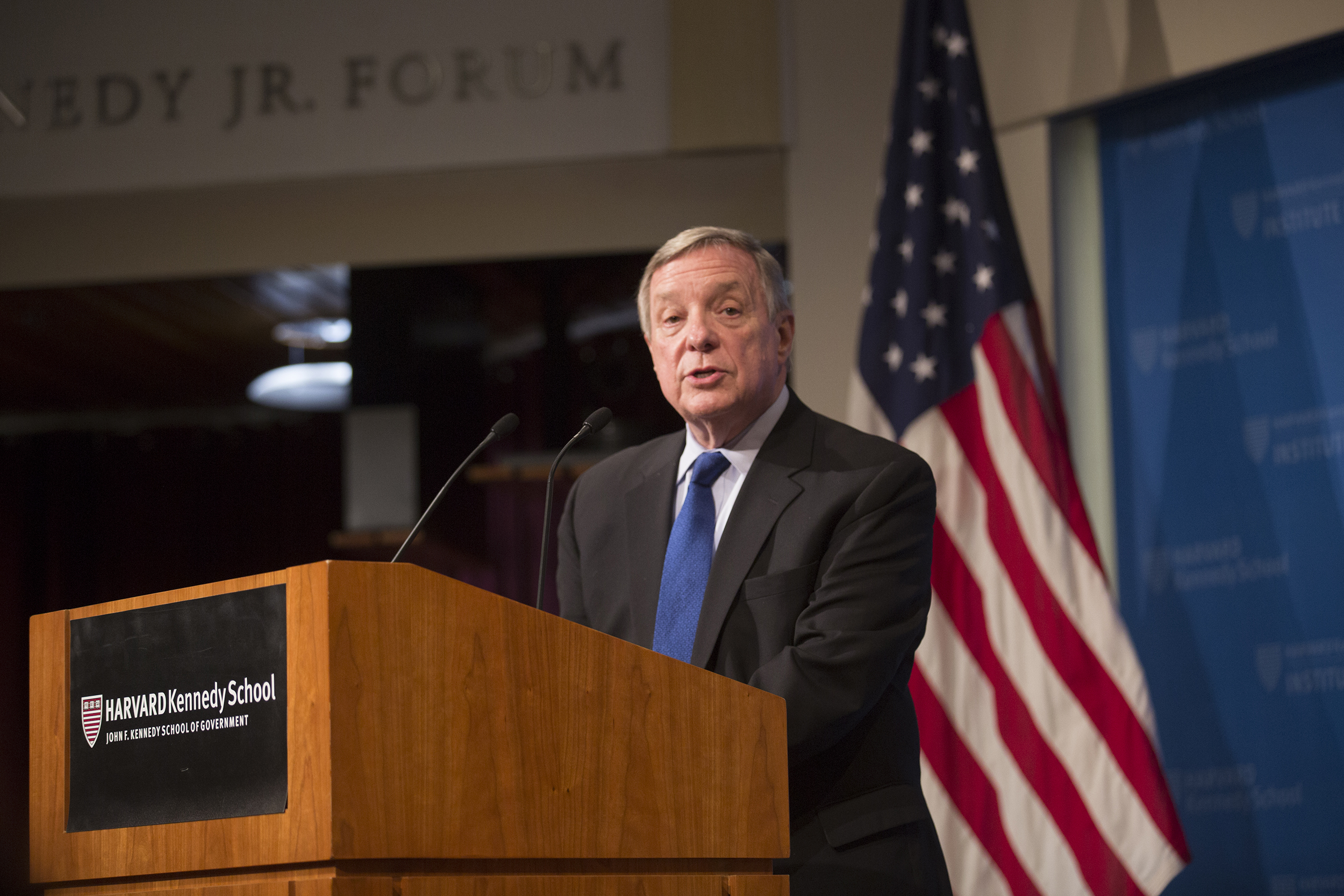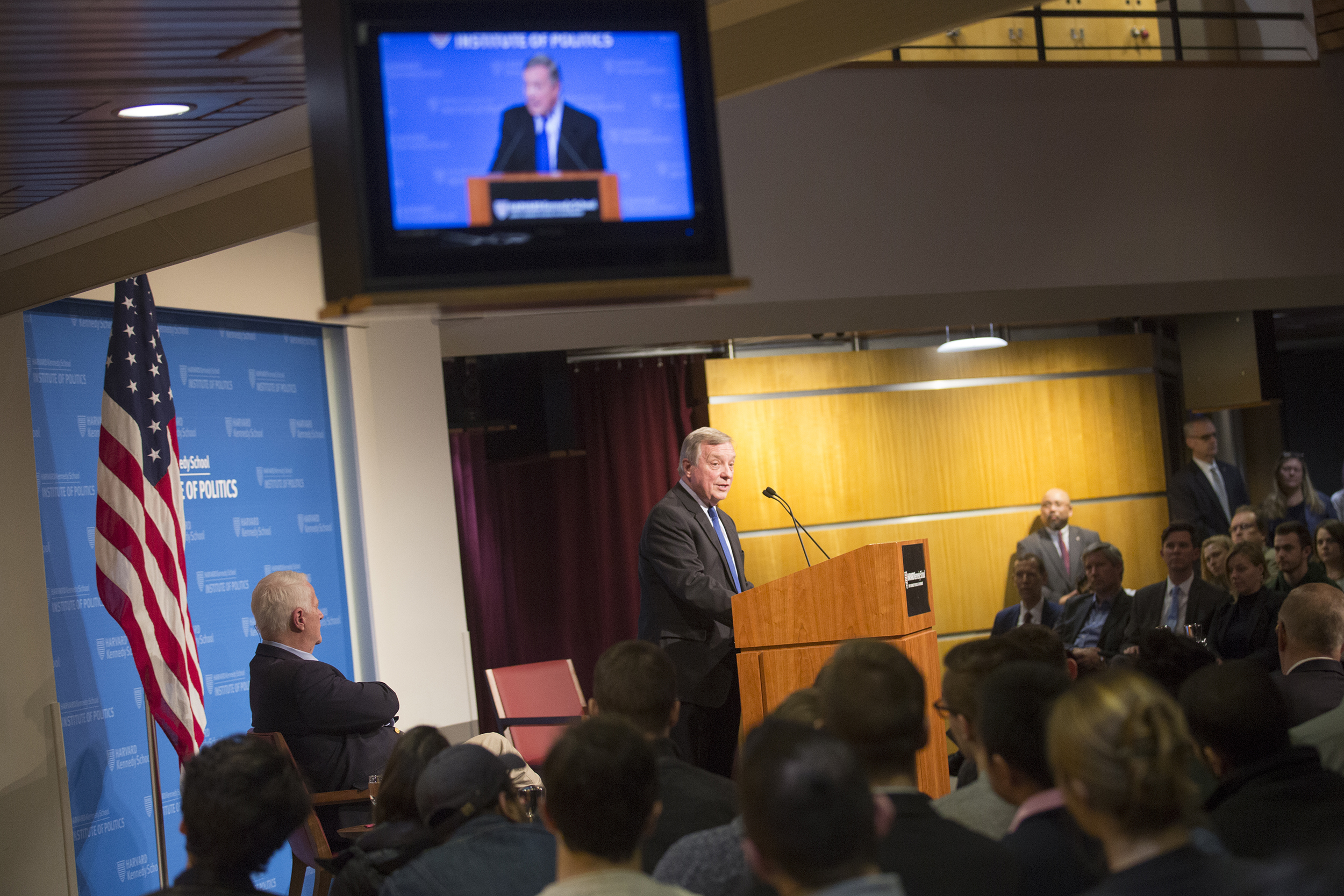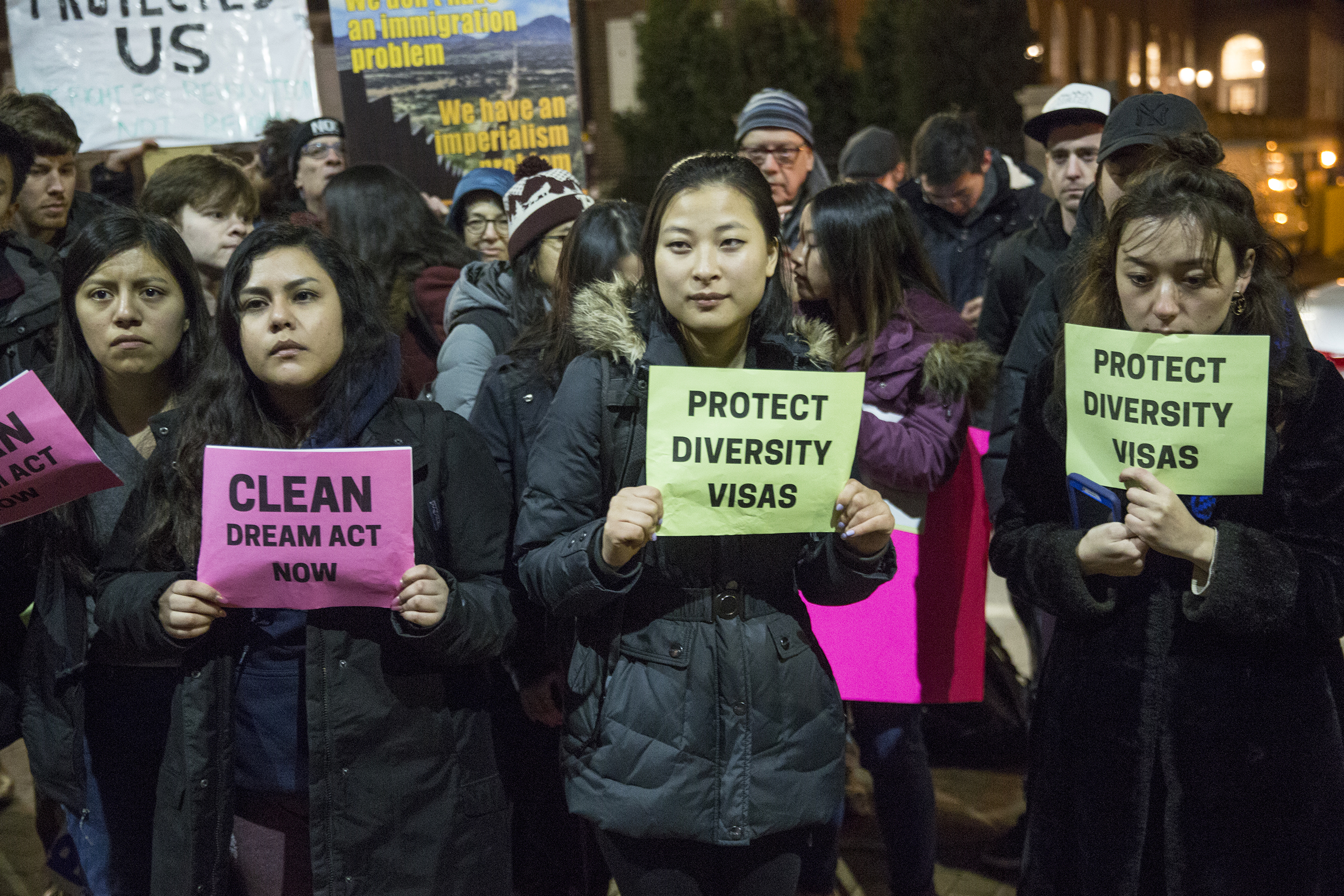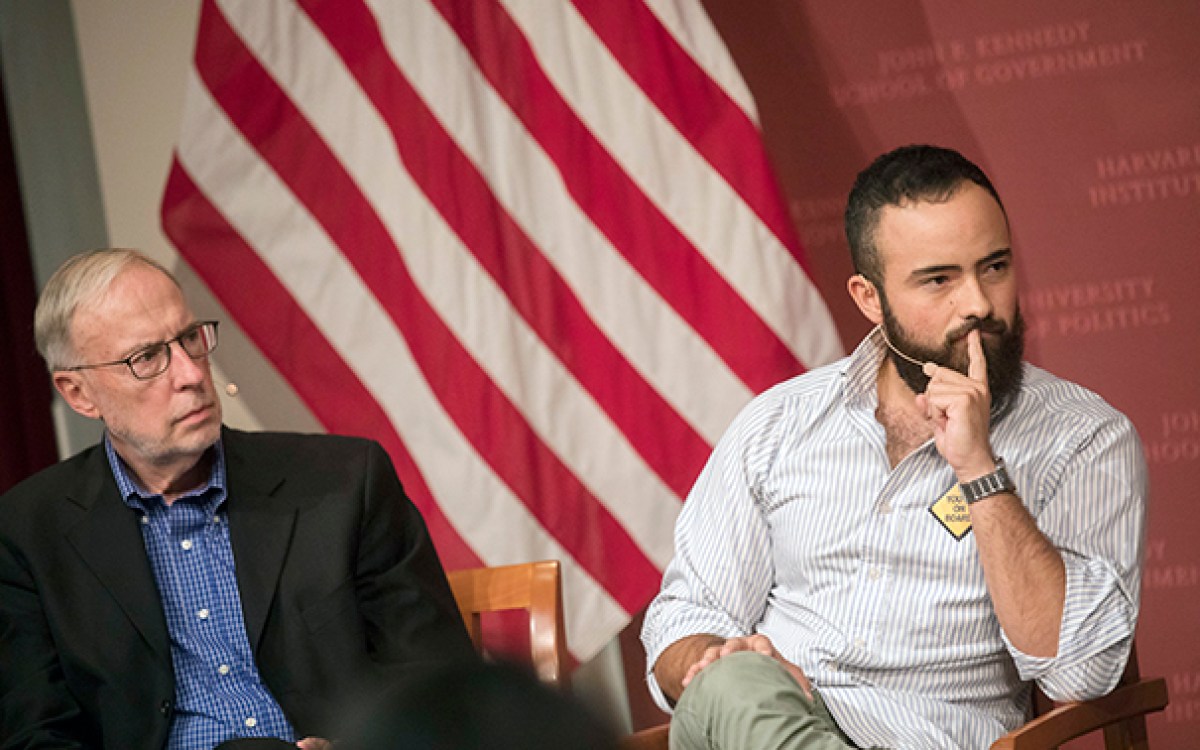
Sen. Minority Whip Dick Durbin, a leading voice on DACA and immigration reform, speaks at the JFK Jr. Forum.
Jon Chase/Harvard Staff Photographer
Durbin outlines plight of the undocumented
Senator, a champion of immigrants, discusses the legislative tug of war over DACA, related issues
Though Congress has only days left to pass a budget to prevent another government shutdown, a key issue in last month’s stoppage — immigration — remains in limbo. That uncertainty has many undocumented residents and Democratic lawmakers on edge.
U.S. Sen. Dick Durbin (D-Ill.), a longtime champion of immigration policies that would provide the undocumented more opportunities to become permanent residents, delivered a 30-minute address at Harvard Kennedy School (HKS) Thursday evening about the importance of keeping the country’s doors open to the world. He also addressed the challenges that supporters of undocumented residents face in pushing “clean” legislation past a Republican-controlled Congress and a president who wants to build a wall along the southern U.S. border.
After the 72-hour shutdown of the federal government ended Jan. 22 without action on the Deferred Action for Childhood Arrivals (DACA) program, Senate Majority Leader Mitch McConnell (R-Ky.) promised that, if his branch did not reached a bipartisan agreement on immigration by Feb. 8, he would allow a bill addressing the matter to be brought on the floor for debate.
“So we’re at the point now where we have a chance, but only a chance,” said Durbin, who as the longtime minority whip is the second-most-powerful Democrat in the Senate after Minority Leader Chuck Schumer (D-N.Y.).
The low-key Durbin, who was introduced by Harvard President Drew Faust, found himself in the headlines last month after he told reporters that President Trump had referred to Haiti, El Salvador, and the nations of Africa as “[expletive]-hole countries” during a White House meeting with legislators over immigration. The president and his allies denied that he made the disparaging comment, but public outcry brought the fraught issue of immigration, and what critics see as the racially motivated undertones of the administration’s immigration policies, back to the front burner. On Thursday, Durbin declined to discuss the president’s language, but did offer a detailed account of the circumstances that led to the Jan. 11 meeting.

A packed JFK Jr. Forum listens attentively during Durbin’s talk.
Jon Chase/Harvard Staff Photographer
During the session at the John F. Kennedy Jr. Forum at the Institute of Politics at HKS, dozens of vocal protestors marched outside, upset at the threat to DACA protections for thousands of young people if Congress fails to reach an agreement soon. They also are concerned that Democratic lawmakers may not push through legislation to counter the administration’s desired limits on immigration.
Ironically, it was Durbin who, along with Sen. Orrin Hatch (R-Utah), in 2001 co-sponsored the original Development Relief Education for Alien Minors Act for which “the Dreamers” are named. Their bill offered conditional residency to qualifying undocumented children while giving them a pathway to permanent status.
When the bill did not pass, Durbin later turned to President Barack Obama, his former Senate colleague, and urged him to help those who would have been shielded by the DREAM Act. The result was the DACA program.
In early September, Trump terminated future legal protections under the program. Congress has until March 5 to pass legislation to replace it and get it signed into law. If lawmakers cannot do so, Durbin said, 1,000 people will begin to lose their protected status every day, with nearly 300,000 losing protection by the end of this year. The same number will lose that status next year, he said.
A College student with DACA status said she felt “guilty” that Congress may agree to legislation that would give her a 10-year conditional path to citizenship, but do so in exchange for $25 billion to build a border wall and boost immigration patrols that would affect other undocumented people. She asked Durbin how Democrats could justify even considering such a Faustian trade with Republicans.

Noting that it takes 60 votes to pass any major legislation in the Senate, Durbin said with 49 Democrats and 51 Republicans, the math is not in their favor. “I don’t have the votes for a clean DREAM Act,” he said.
As students voiced their anger, frustration, and fear over what may happen to their status, Durbin urged the Forum audience, which was made up mostly of undergraduates, to channel their energy into political action, including protesting and, most importantly, voting.
“I believe this issue of immigration is the Civil Rights issue of our time,” said Durbin. Political opponents are “preaching a gospel on immigration which doesn’t reflect who we are or what we can be. Now’s our time to speak up.”







